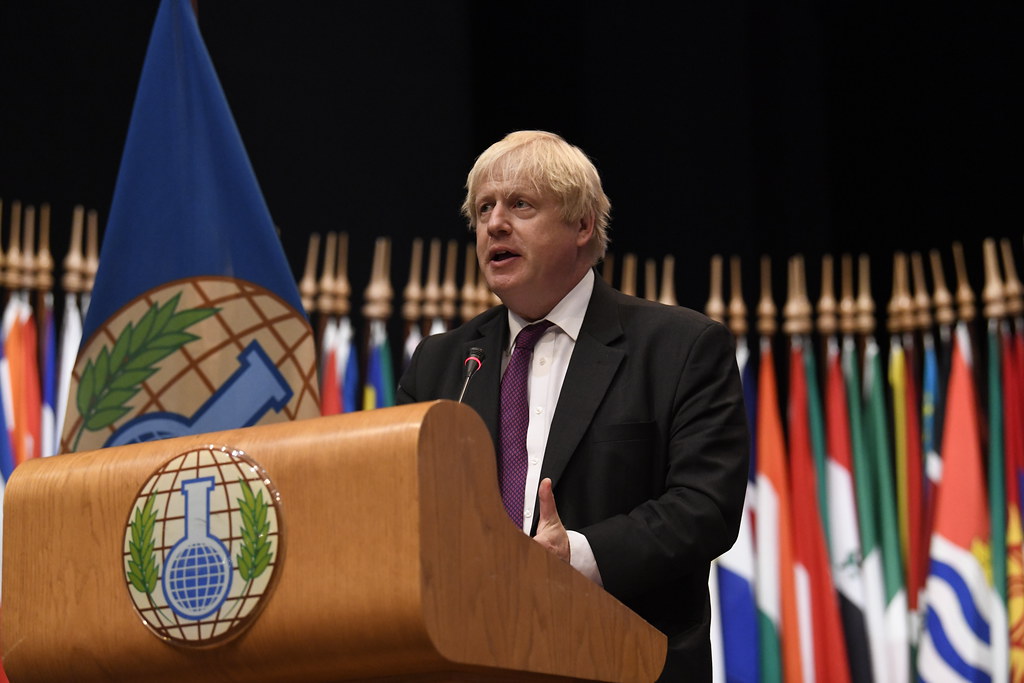Boris at the Helm: What Next for Scotland?
July 31, 2019 | Expert Insights

Background
Scotland was an independent country until the promulgation of the Acts of Union in 1707, which united it with England and Wales. Although the union was not universally welcomed, it allowed Scotland’s commercial, intellectual and political elites to thrive. This resulted in their Scots providing a disproportionately large share of their resources to build the British Empire. The Scottish National Party (SNP) was founded in 1934 to unite the nationalist movement through a merger of two pre-existing nationalist parties. Today, Scotland is home to one of Europe’s most prominent independence movements. Since the 2014 referendum, in which voters chose to remain in the UK by 55% to 45%, the nationalists have gathered strength.
Boris Johnson has had an uneasy relationship with Scotland in the past. He once called for Scottish citizens to be prohibited from becoming PM, citing that ‘government by a Scot is just not conceivable’. While he was the editor of ‘The Spectator’, he republished a poem calling Scots ‘vermin’ and that they should be put in ‘ghettos’.
Analysis
Boris Johnson’s estrangement with Scotland has hardly changed for the better. Despite calling for a renewal of the ‘ties that bind the UK’ along with a proposed 300 million pound pledge to Scotland, Johnson is still overwhelmingly unpopular among the Scots. Following Johnson’s swearing-in, Scotland’s first minister, Nicola Sturgeon, immediately announced plans to hold a second independence vote by 2021.
PM Johnson was recently accused of ‘having a weak grasp of the dynamics of devolution’. This accusation was a result of his proposed tax changes that do not account for the fact that the Scottish Parliament sets Scottish income tax rates. Since then, however, he has assured Scottish conservative MPs that he will establish a ‘union unit’ under the auspices of his office that will scan every policy for possible discrepancies.
Nevertheless, it has been widely predicted that Brexit will be the cause of his undoing, even in the present scenario. In Scotland, the idea of a no-deal Brexit is far more alarming than it is to the rest of the UK, as it could plunge the country into economic turmoil. To substantiate this, opinion polls indicated that 63% of Scots would vote to leave Britain if Johnson pursues a no-deal Brexit. Furthermore, the 2014 referendum was termed a ‘once-in-a-generation’ vote. However, the SNP argues that 62% of Scots voted to remain in the EU in 2016, a far bigger margin than the 55% who voted to stay in the UK two years prior.
Counterpoint
In spite of the Scottish independence movement gaining vigour and pulling itself forward in the British political agenda, it remains unlikely that Boris Johnson will go down as the United Kingdom’s last PM. This is because Westminster reserves the authority to sanction another Scottish independence referendum. The Johnson government will thereby display vehement opposition and do everything it can to block such a vote from happening.
Similarly, the inherently astute and careful Scottish government is unlikely even to contemplate employing alternate methods to gain freedom, much less put them into action.
Assessment
- Although Scotland did vote to stay in the UK half a decade ago, the subsequent decision by the UK (primarily England and Wales) to leave the EU inexorably altered the terms of the 2014 referendum and did nullify the result up to a certain extent.
- In the case of a no-deal Brexit, Scottish public opinion might shift dramatically to independence as the better option, with the prospect of rejoining the EU post-independence.
- Nicola Sturgeon will likely hold a citizen’s assembly on independence to consider what kind of nation Scotland should be and assist people in making an informed choice about its future.
- A resounding SNP victory in the recently concluded EU election hints that Scotland’s inclination is far from certain if forced to pick between membership of the UK and the EU.
- Johnson’s recent appointment has only cast further doubt on Scotland’s leaning, with the prospect of a dissolution of the union under his watch now looming large.
Image Courtesy: flickr.com








Comments